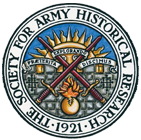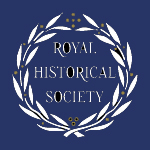The Activities of the Alien Office
There were three main issues related to the secret state that were the focus for the activities of the Alien Office. These were: The continuing unrest in Ireland which led to a French invasion in 1797 and the rebellion of 1798 (See also Rebellion in Ireland in the Empire of the Oceans topic); the rise of Napoleon and his ambition to dominate the European continent and the prevention of home-grown revolution promoted by a network of so-called ‘corresponding societies’ which were being initiated by democratic clubs throughout the country.
The Alien Office employed its own agents, mainly in London and the South Coast ports, and also worked with London’s stipendiary magistrates, and their foot-soldiers, the Bow Street runners, who were responsible for maintaining order in the capital. The runners used a network of informants to identify trouble-makers before bringing them in front of Stipendiary Magistrates for prosecution and sentencing.
The Office was located at 20, Crown Street, between Downing Street – the home of the Prime Minister – and the Foreign Office in King Charles Street. Whilst nominally responsible to the Home Secretary, Dundas and, after 1815, Wellington, the Alien Office drew its funds from the Treasury’s secret funds and had direct access at all times to its First Secretary, the Prime Minister, who controlled its work and took a keen interest in its activities.
On appointment, Wickham’s main concern was the situation in Ireland where British rule was threatened with insurrection and invasion. This culminated in a famous trial at Maidstone in 1798 during which Irish conspirators were accused and found guilty of treason and their leader hanged. This was a consequence of the rebellion throughout Ireland that had started in 1797 and was only suppressed after brutal reprisals led mainly by Protestant Militia supported by British troops.
William Wickham and his secret war against Napoleon.
When Royalist opposition to the revolutionary government in France led first to the execution of Louis XVI and his Queen and then to the rise of Napoleon and his imperial ambitions.
Wickham moved to Berne in Switzerland where he directed a secret war against the French regime by supporting the opposition to Napoleon that was designed to encourage insurrection on the Continent and raise doubts about the loyalty of his allies.
Neutral Switzerland provided easy access to the French border where the city of Lyons was particularly sympathetic to the Royalist cause. Wickham also managed corresponding agents in Europe’s major port cities including Antwerp, Cherbourg, Genoa and Hamburg who kept watch on enemy shipping and reported on the enemy’s naval and troop movements.
During the short peace of 1802 the Alien Office’s work was terminated and Wickham was appointed Chief Secretary to Ireland. Evan Nepean, a former naval purser, from the Home Office took over its work.
However, after the breakdown of the peace following the failure of the Treaty of Amiens in 1803, the Alien Office was re-formed and became entirely focused on the defeat of France.
Between 1803 and 1815 the Alien Office was involved in the support of many plots to dispose of Napoleon organised by informal networks of French royalists and anti-revolutionary conspirators called the chouanes, named after two brothers. One of these led to Napoleon narrowly avoiding a bomb plot in Paris. However, none were successful and Napoleon was only defeated on the field of battle in 1815
By the end of the war the Alien Office had established a comprehensive filing system of suspects that could be shared between its own and the Home and Foreign offices which was managed by Wickham’s former assistant, David Flint.
Wickham himself resigned from exhaustion in 1804 and retired to Hampshire never serving in government again.
Apart from some very slim evidence in Home Office files, there are no records of the Alien Office’s work in existence although it is unlikely that the secret state disappeared completely.
PS…
I have been delighted to watch the third series of the BBC’sPoldark in which William Wickham appears.

